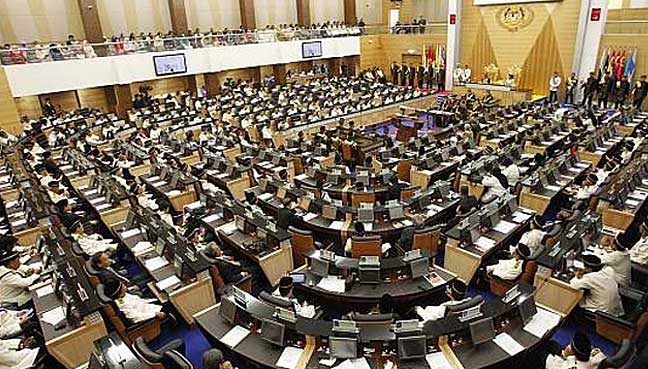Just yesterday (26th March), many Malaysians’ attentions were drawn to parliament as the proposed Anti-Fake News Bill 2018 was being tabled after it was approved by the cabinet last week. Among some of the bill’s proposed laws consider the following as offences that could land offenders in prison for up to 10 years:
- Knowingly creating, publishing, and distributing fake news
- Directly or indirectly providing financial assistance to facilitate the spread of fake news or to abet the offence
- Failing to take down the news after knowing or have reasonable grounds to believe the news in question fake news
- Failing to comply with court-ordered removal of fake news

Source: fmt
According to the Malay Mail Online, lawyers have warned that the proposed Anti-Fake News Bill 2018, tabled in parliament yesterday (26th March), could criminalise and even kill satirical comedy.
Satire is defined as the use of humour, irony, or exaggeration to criticise individuals or ideas, particularly in the context of politics and topical issues.
Constitutional lawyer Lim Wei Jiet told the daily,
“This would surely kill satirical news — which is an important element in socio-political dialogue. Think about cartoonists, The Tapir Times, The Onion etc.”
“Artists and publishers use their creative license day in and day out — often via hyperbole and exaggeration — and I am afraid we would all err on the side of caution and be stultified to nothing.”

Source: mmo
One worrying element about this proposed bill Lim pointed out is that it has potential to be abused, and could propagate censorship. The lawyer added,
“There is uncertainty & arbitrariness in the legislation. This is against established principles that criminal legislation must always be clear because we are dealing with the liberty of a subject here.”
“If indeed any information which deviates from government sources is deemed “fake news”, then it would send a chilling effect on our democratic freedoms & be a precursor to an Orwellian society.”
Surendra Ananth, a co-chair on the Bar Council’s constitutional law committee, concurred with Lim’s view on the bill, adding that since fake news is “not defined”, a section of the bill covering the creation, publication, and distribution of fake news could easily cover topics that are not news, like satirical work for example.

Source: mmo
Fake news in this context is reportedly defined as “wholly or partly false news, information, data, reports, which are not limited to social media and can be written by any publication.” This bill also covers news outside Malaysia by Malaysians or foreigners, if the news in question is about Malaysia or affects a Malaysian.
In light of this bill, Amnesty International‘s Director of Southeast Asia and the Pacific has spoken out. Excerpts from his statement reads,
“The vague and broad definition of ‘fake news’, combined with severe punishments and arbitrary arrest powers for police, shows that this is nothing but a blatant attempt to shield the government from peaceful criticism.”
“With both Singapore and the Philippines considering their own ‘fake news’ legislation, we call on all countries in the region to refrain from following this dangerous trend.”

Source: nst
Meanwhile, Minister in the Prime Minister’s Department, Datuk Seri Azalina Othman Said, said the proposed bill can effectively manage increasingly complex offences that have arised from rapidly developing technology – offences that currently aren’t really being addressed by current laws. She told the New Straits Times,
“We have to understand that although there are relevant laws, but until today, the rapid and complex development of communications technology means the problem still cannot be managed effectively.”
“What more, these laws, such as the Penal Code, Printing Presses and Publications Act 1984, and Communications and Multimedia Act 1998, were drafted during or before the 1990s, and could not address the nature of increasingly complex offences in line with rapid technological progress.”
“The government has decided to allow a neutral and fair party, which is the courts, to decide, which is by due process of law. The courts will have the power to rule on the disposal of any publication deemed to contain fake news,” she added.
What is your take on this proposed bill? Let us know in the comments below!
Also read: Here’s How Malaysians Can Spot Fake News and Avoid Sharing Them











































